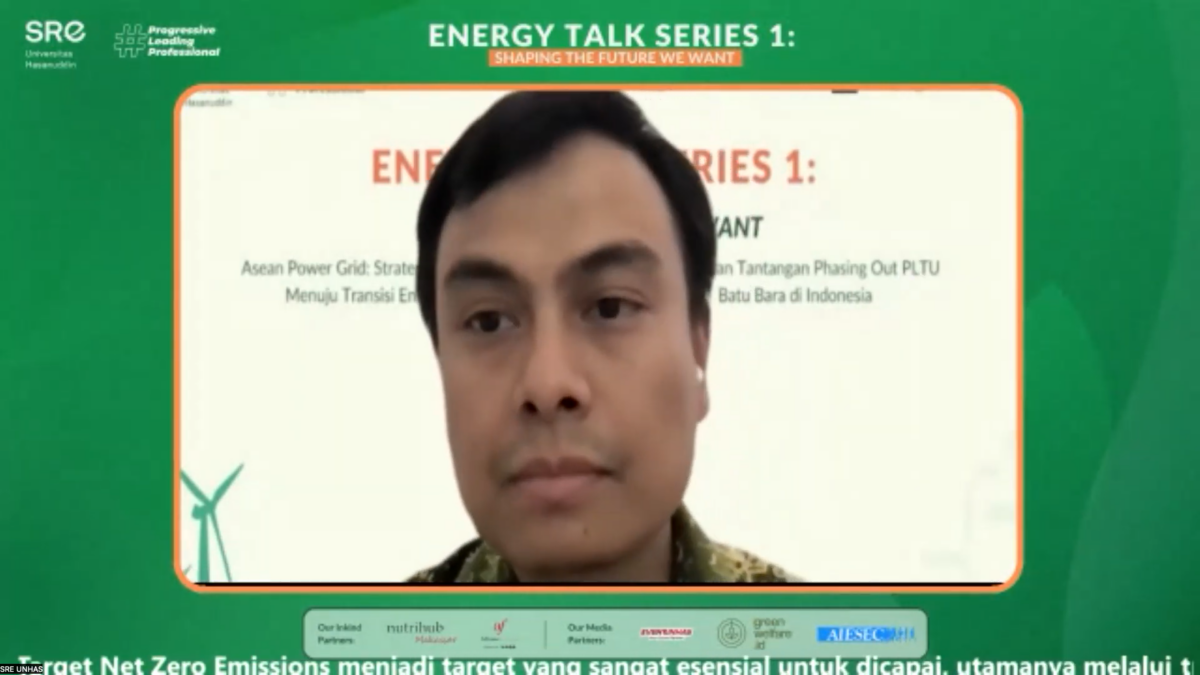Jakarta, June 24, 2023 - Raditya Yudha Wiranegara, Senior Researcher at the Institute for Essential Services Reform (IESR), explained several challenges in retiring PLTU and how renewable energy plays a role in shaping the future. This was discussed in the Energy Talk event held by the Hasanuddin University Society of Renewable Energy (SRE).
Raditya, or…



